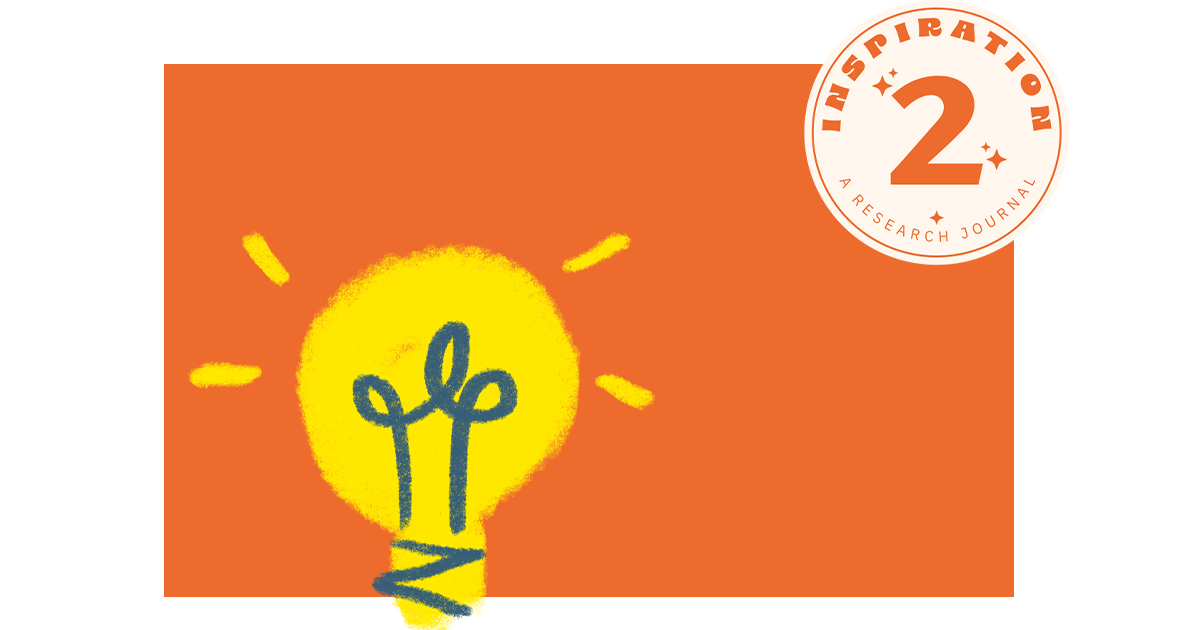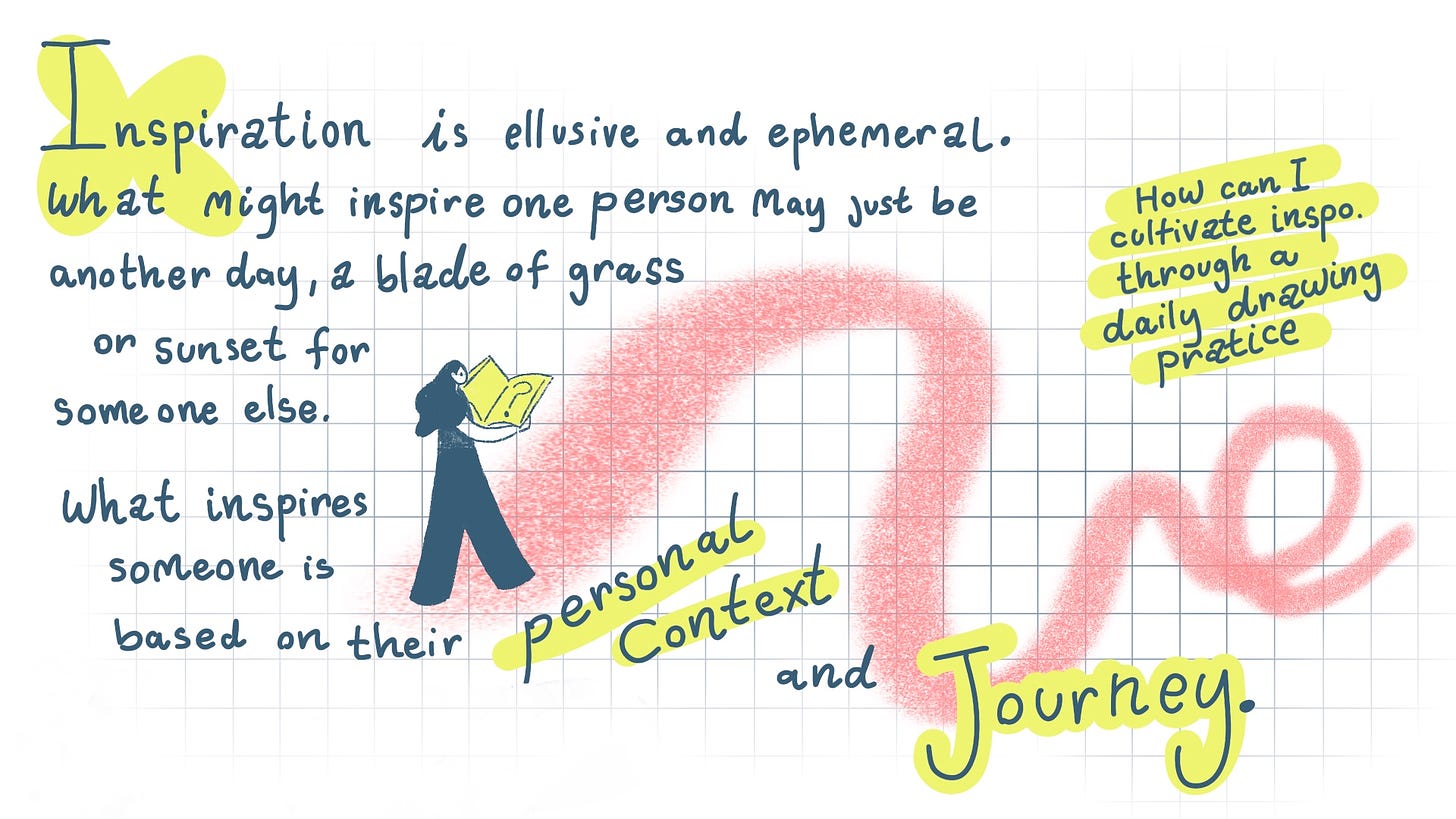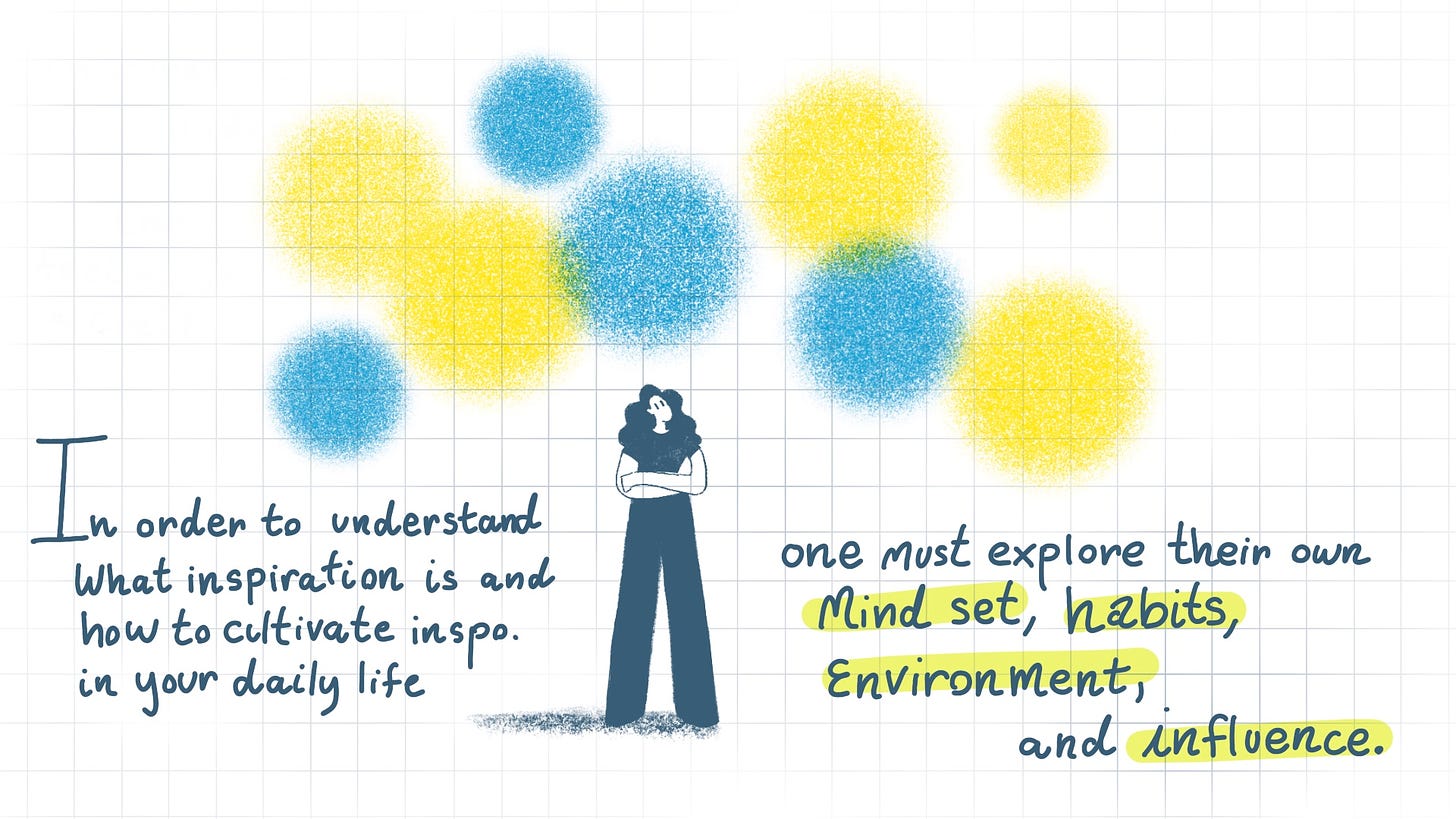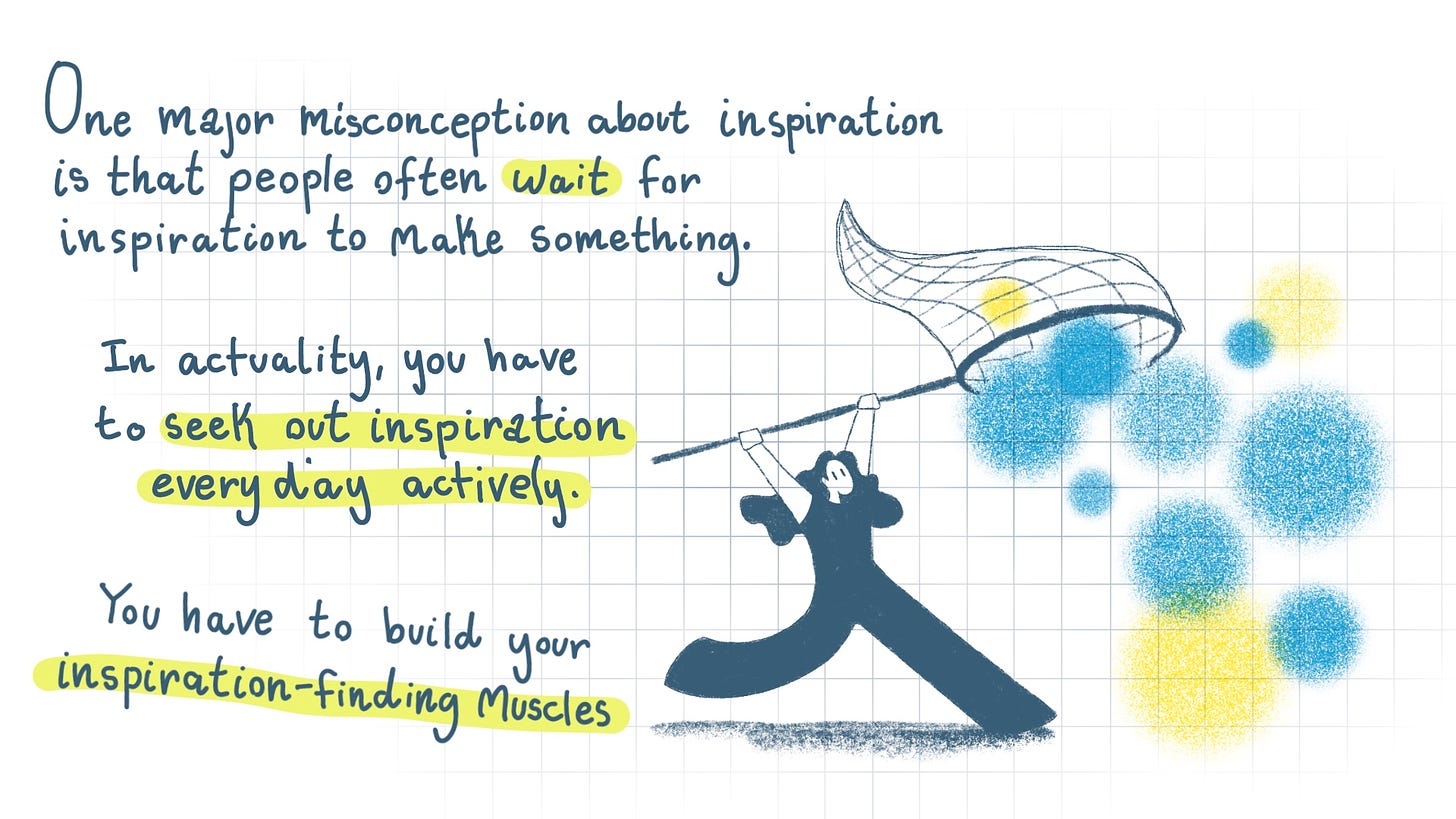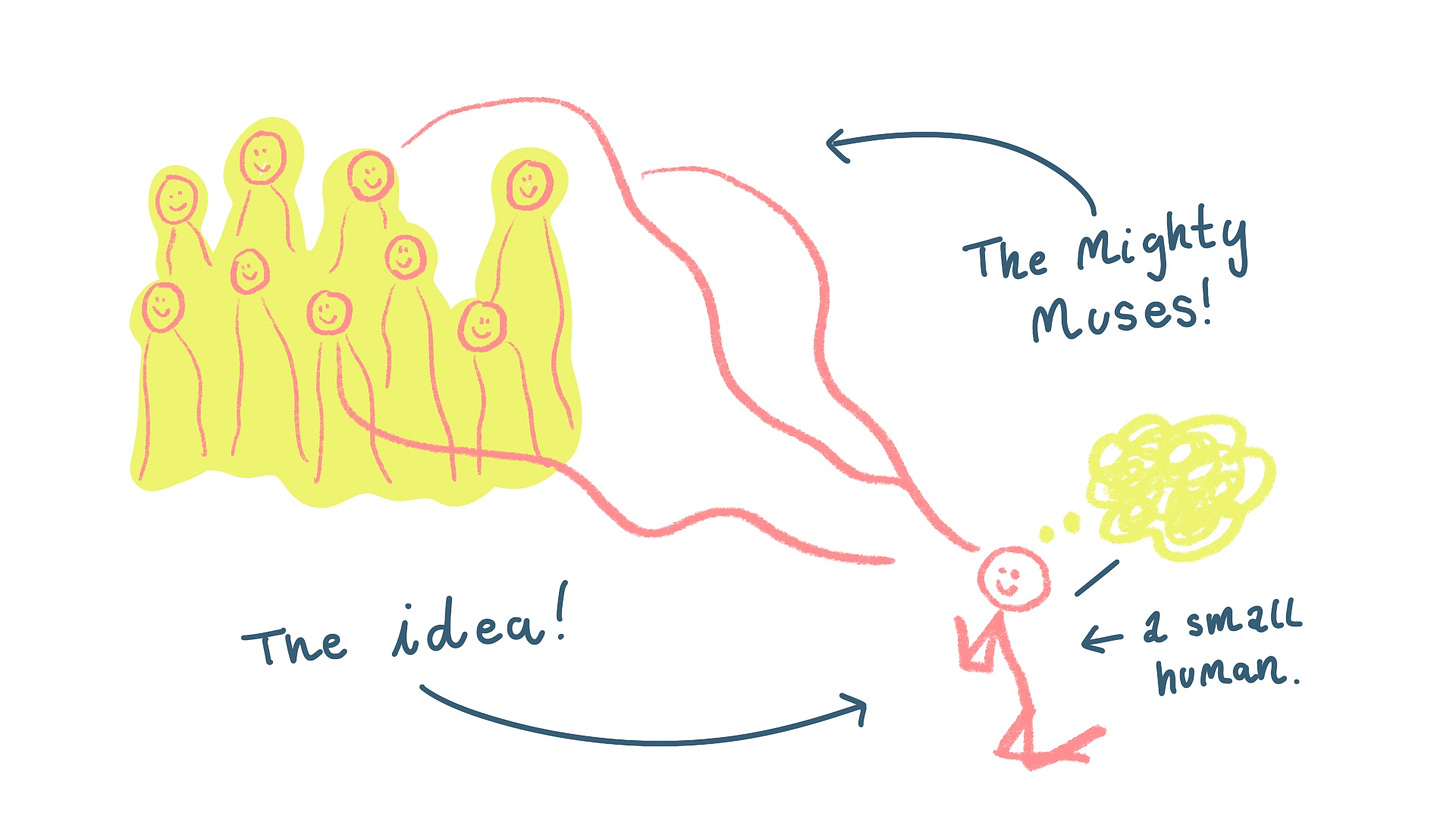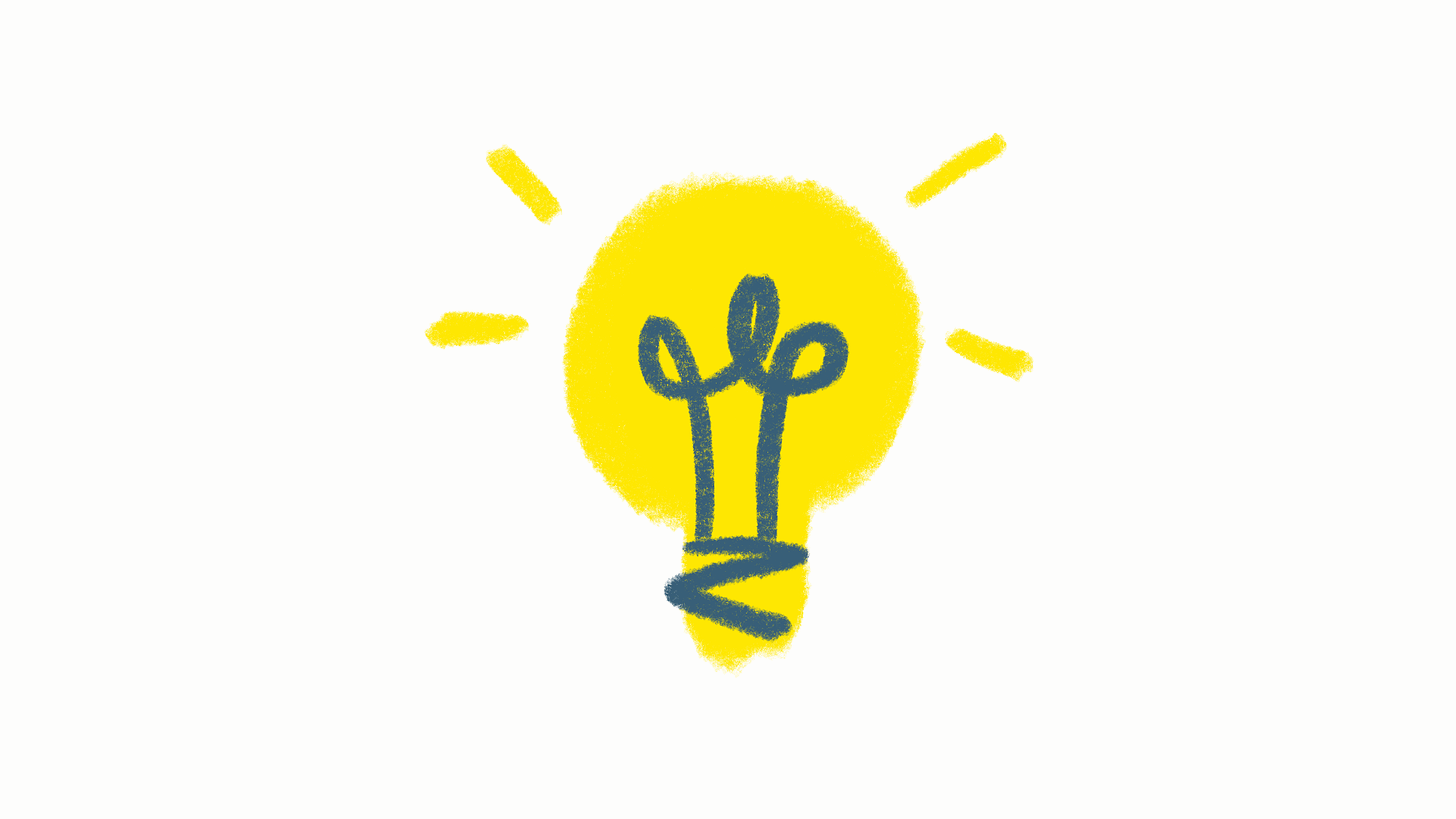What is Inspiration?
To understand where to find inspiration, we must first define what inspiration is by exploring Myths, Psychology, and Personal Creativity
Hey there, Drawn to Lifers ✨
Today, we discuss mythical muses and modern psychological insights about how inspiration has long been recognized as a powerful yet fleeting force synonymous with creativity. In October 2023, I set out to intentionally study inspiration in the creative process and where it comes from, examining my practice and others. This is the second post in a series where I go deeper into inspiration, sharing my academic research FOR FREE. Because I am cool like that, in case you missed it, you can read the introduction here.
My research methodology (how I gathered all this incredible information) included testing through making and developing strategic mini-projects to hone my approach and style of cultivating inspiration. 1 But I also spent many hours reading academic journals and psychology research, which I have so kindly summarized below so you don’t have to :)
The first step in this process was to define inspiration. At the risk of copying a dictionary definition, I drew my thoughts on inspiration instead:
Inspiration in Mythology
In ancient Greece, the Muses, commonly called the nine daughters of Zeus, were the active force infusing transcendent knowledge into humans. In Christianity, inspiration is seen as a gift from the Holy Spirit. In the modern workplace context, finding and implementing new ideas is becoming an increasingly valuable skill, “it has been broadly acknowledged that leaps in the ideational process, via inspiration or insight, often lead to breakthroughs in the creative process”.2 Before delving into the exploration of inspiration and its place within illustration and the creative process, it is crucial to establish a foundational understanding of what the term inspiration means. Etymologically, the term "inspiration" finds its roots in the Latin word "inspiratus," a compound meaning "to blow upon/into," "breathe into," and "excite, inflame" when translated to modern English. 3 (Okay, you caught me. I couldn’t help turning to the dictionary for a definition!)
Inspiration in Psychology
Psychologist Tobin Hart sought to unravel the intricacies of inspiration in his 1995 qualitative study on the experience and meaning of inspiration. He initially characterized it as a subtle yet distinct event, encapsulating significant moments in our lives. Hart's interviews with participants aimed to unravel the multifaceted nature of inspiration, spanning from profoundly mystical experiences to everyday occurrences, encompassing creativity and problem-solving. In his conclusive reflections, Hart refined the definition, portraying inspiration as a specific epistemic process that provides psychological and spiritual sustenance, marked by the recognition or remembrance of valuable knowledge or perspectives within a given social or psychological context. 4
Basically, Hart found that inspiration is usually something that gives us positive ideas and makes us feel happy. It can come from everyday things or memorable moments.
So, what exactly is inspiration? Inspiration is a powerful force that goes beyond traditional creativity, but from what we know, it’s hard to define it precisely regarding your personal experience. Inspiration can provide psychological and spiritual nourishment and ultimately shape the journey toward innovation and breakthroughs in the creative process.
And speaking of journeys, thank you so much for going on this journey with me! If you like what you read and don’t want to miss future nuggets of inspiration, consider subscribing!
OKADA, Takeshi, and Kentaro ISHIBASHI. 2016. “Imitation, Inspiration, and Creation: Cognitive Process of Creative Drawing by Copying Others’ Artworks.” Cognitive Science 41(7), 1804–37.
EDITORS OF MERRIAM-WEBSTER. 2017. “The Origins of ‘Inspire.’” Merriam-Webster, 22 Sep [online].
HART, Tobin. 1998. “Inspiration: Exploring the Experience and Its Meaning.” Journal of Humanistic Psychology 38(8), 7–35.





